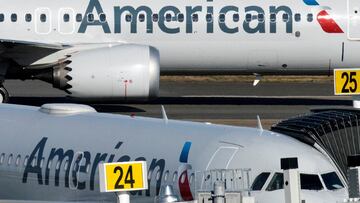Why are flights so expensive and when will ticket prices drop?
For those looking at flight prices relief may soon be on the way. What is effecting the prices?

Cancellations, lost luggage, delays... travelers this summer are seeing some of the worst service the airlines have ever offered. Many airlines are attempting to handle pre-pandmeic demand for air travel with a fraction of the staff; needless to say it is not going well.
With many hoping to travel this summer, the poor service has been met with some of the highest prices in the sector’s history.
The covid-19 pandemic has taken a severe toll on the airline industry, with major labor shortages after thousands of workers were laid off in March and April 2020. With masks no longer required on flights within the continental US, infection is much more likely for staff. This often leads the airline to cancel hundreds or thousands of flights as they do not have the pilots, navigators, or attendants to run their full schedule.
Will prices begin to fall?
Compared to June 2021, price are up thirty-four percent; from May to June 2022, airfare did fall .02 percent. These historic rates are, in part, driven by the Russian invasion of Ukraine which has led to a supply and inflation crisis.
Jet fuel has been impacted by these market shifts and prices have risen steadily since February. Jet fuel prices peaked in mid-June at $175 a barrel and the current price stands at $150.69 This time last year, the barrel was under $100.
While pricing are currently trending down, there are a few other signs that high prices could be here for a while.
Historic refinery margins
One concerning sign in the market data are refiniery magins. This is the price representation of the value added by the refining process. With refined products seeing higher than average in demand, an increase in price has followed the surge. Shell reported that their after Q2 2022 came refinery margins stood at $28.04/bbl, more than double the rate of $10.23/bbl from Q1, and seven times higher than Q2 2021.
This means that this price must be included in the total cost of the barrel, in addition to other costs related to labor, production, and transporation. If margins increase will the costs of the latter two are likely to be impacted as well, which places more pressure on the price of airfare, gasoline, diesel, and other refined prodcuts.
Additionally, in the United States where oil refineries closed down during the pandemic, high prices are being driven by a lack of supply in the market. Marathon Petroleum Corp, the largest refiner in the United States has seen their stock price sour this year, up more than twenty-eight percent since January. Companies are profiting and citiezens are struggling to keep up with inflation because of the impact high fuel costs are having across the market.
US airlines struggle to find workers
Aside from the issues in the fuel market, labor shortages have also impacted airline performance and airfares. Bloomberg reported that around 400,000 airline workers were fired, furloughed, or told they could be at risk of losing their jobs in April and May 2020. Many of these workers went on to leave and find work in a less volatile sector, and as such, the employment situation has not been resolved. The low pay, long hours, and job uncertainty have made it difficult for the industry to attack new workers.
Speaking with The Guardian, the Vice President of the air division at Transport Workers United said that airlines “have been competing in a race to the bottom in terms of how workers are treated, retaining enough workers, and maintaining airline jobs as career jobs.”
With many airlines having to cancel and reschedule flights due to labor shortages, hiring challenges are also reflected in the market.
American Airlines and its Wholly-Owned Regionals and the Association of Flight Attendants-CWA, a union representing fifty thousand workers, reached an agreement that both organizations hope will “attract new hires to the skies.”
The agreement includes an increase in the starting pay to $27/ hour, provides a retention bonus, a “summer reliability incentive program, and significantly improve commuter benefits.”
“What’s good for the crew is good for the airline and the passengers who expect a safe, reliable travel experience,” said Nelson.






